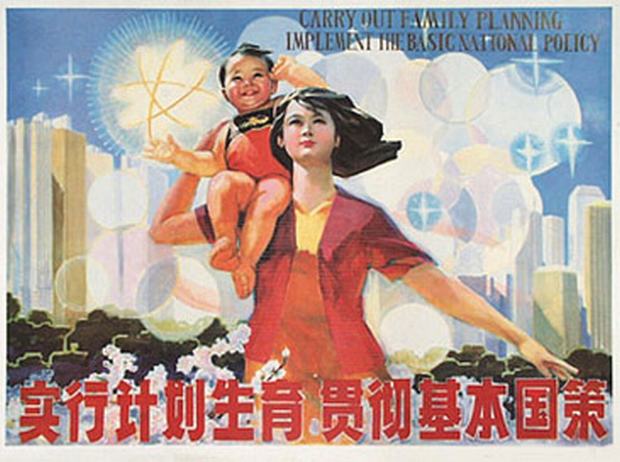Family Planning Policy of China
Why Family Planning
Excessive population growth is an extremely serious problem facing the contemporary world. Lacking prompt and determined moves to control population and maintain a balance between consumption and development, the world population would be 12.5 billion people by the middle of the next century and humanity is unable to develop further.
The global emergence of the population question poses a serious challenge to many countries and regions. For a populous developing country like China, the challenge posed by the population question not only has a bearing on the survival and development of the Chinese nation but also affects the stability and prosperity of all human society.
The population problem is an important question that touches upon the survival and development of the Chinese nation. China needs to consider the carrying capacity of its land and water resources. The success or failure of China's modernization drive as well as the coordinated and sustained development between the population on one hand, and the economy, society, resources and environment on the other.
The Chinese traditionally prefer early marriage, early child-bearing, and large families. Each married women usually raises between five and six children. The Chinese say: "...more children means great happiness". Due to poor health care, natural disasters, and long periods of war, the population of China increased from 250 million to 500 million within approximately 200 years. Since health care has been improved, as well as the ability to supply enough food, the population exploded between 1950 and 1980. The population increased from 500 million to 1000 million in only 30 years. It is a natural choice that the Chinese government has made to implement family planning, control population growth and improve the life quality of the population a basic state policy on the basis of a wish to make the state strong and powerful, the nation prosperous and the people happy.
Development and situation of Family Planning during the past 40 years
Because of the huge population base and large annual increase, central government needs to establish a national target and policy. China is a big country, the economic level of development and cultural background vary considerably in different areas. Because of the family planning regulations made by local governments, there is great diversity in China and increased flexibility for minorities.
Family Planning policy was issued in 1970s. For over 40 years, the Chinese Family Planning Policy guidelines are as follows:
1. Controlling the rapid population growth and reducing birth defects.
2. Late marriages, later births, and fewer babies; couples are encouraged to have only one child. In rural areas, the birth of a second child should be spaced 4-5 years from the first
In the 1970s, the principle of the family program was late marriage, fewer births, and spacing of births. Fewer births were advocated - one is good, two are acceptable and three are too many. In China, it is estimated that approximately 300 million births were averted between 1970 and 1994 due to the implementation of the family planning program. In spite of the program, the large population base and annual net increase still placed tremendous pressure on China's economic development, resources and environment. Therefore, while adhering to the policy of reform and opening up to the outside world so as to sustain a rapid and healthy development of the national economy, China must adopt a strategy of sustainable development, further promote its family planning program, and provide quality reproductive health service to eligible couples.
In the early 1980s, central government advocated one child per family in urban areas. For rural area couples, one child is impractical, which causes difficulties; therefore, couples are encouraged to have a second child after a gap of around 4 years. At present in large cities, the fertility rates are lower than other levels, but in minority areas the growth rates were still higher than 15%. The national average for each family is to now have two children, except for in minority areas where women may still raise between four and five children.
Why the One-child Policy was good?
1. Family planning has effectively checked the trend of over-rapid population growth.
According to statistics supplied by the United Nations, China's population growth rate has already been markedly lower than the average level of other developing countries. According to calculation by experts, if China had not implemented family planning but had all along kept the birth rate at the level of the early 1970s, its population would possibly have passed the 1.5 billion mark by now.
2. Family planning has promoted the change of people's perceptions regarding marriage, birth and family.
The traditional ideas of "early marriage and early births," "more children, greater happiness," and "looking up on men and down on women" are being discarded by more and more people at the child-bearing ages. Late marriage and late births, fewer and healthier births, viewing male and female children as the same, establishing happy, perfect and harmonious small families and seeking a modern, scientific and civilized way of life have become an irresistible trend of the times.
3. Family planning has promoted the improvement of the quality of the Chinese population in terms of education and health as well as the overall development of the people.
The major indexes of people's medical care and health have already far outstripped countries at the same level of economic development, and the gap with the developed countries is being gradually narrowed. China is now accomplishing the goal of nine-year compulsory education in a planned and systematic way.
4. Family planning has further liberated the female productive forces and helped improve the status of women.
Family planning in China has extricated women from frequent births after marriage and the heavy family burden, further liberated and expanded the social productive forces latent in women, and provided them with more opportunities to learn science and general knowledge and take part in economic and social development activities, hence greatly promoted the improvement of the Chinese women's status in economic and social affairs as well as in their families.
5. Family planning has accelerated the process of eradicating poverty in rural China.
In China's poor areas, economic and cultural backwardness and too many births often interact as both cause and effect. In the communities that have extricated themselves from poverty, farming households that have implemented family planning are often in a clearly advantageous position.
The positive impact produced by family planning on Chinese society is wide and profound. With the passing of time, the benefits of family planning, for the people and for posterity, are bound to be more apparent.
Two-child Policy Since 2015
The time has come for another big step – a switch from the Family Planning Policy to Two-child Policy.
With the end of One-child Policy, the new two-child policy has come into effect throughout China. One couple is allowed to have two children from now on. The Chinese government implemented the law so as to ease the problem of its shrinking population and aging workforce. The law will be progressively improved to further promote the sustainable development of population, resources and economy.




